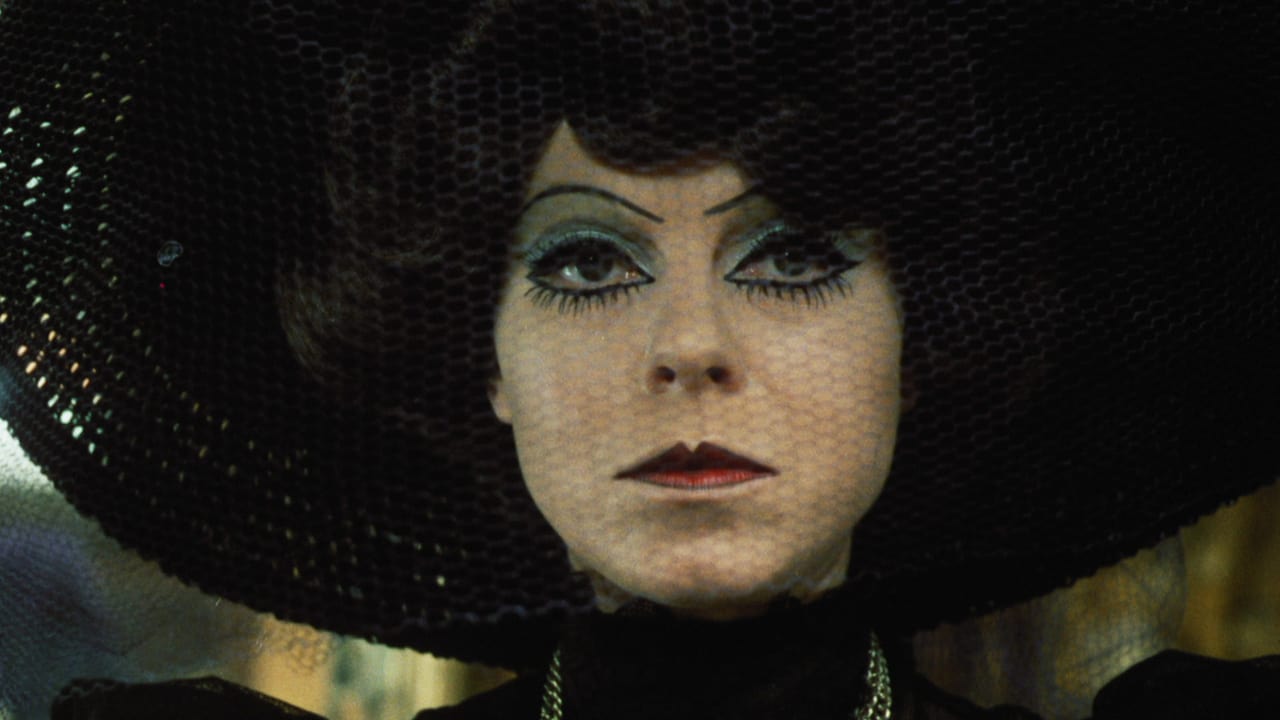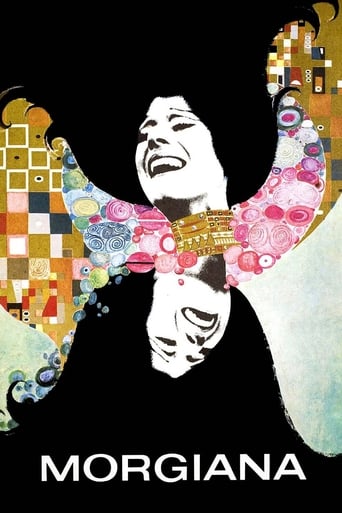

Very well executed
... View MoreIf you like to be scared, if you like to laugh, and if you like to learn a thing or two at the movies, this absolutely cannot be missed.
... View MoreThe plot isn't so bad, but the pace of storytelling is too slow which makes people bored. Certain moments are so obvious and unnecessary for the main plot. I would've fast-forwarded those moments if it was an online streaming. The ending looks like implying a sequel, not sure if this movie will get one
... View MoreIt's simply great fun, a winsome film and an occasionally over-the-top luxury fantasy that never flags.
... View More"The draught will kill me one day", Viktoria (Janzurová) fussily complains about the opening window, her words will actually come true, through a tenuously linked poetic justice, it is a symbol of Morgiana's revenge.The story of this Czechoslovakian drama is rather minimal, set in an unspecified period time, Viktoria is plotting to murder her twin sister Klara (also played by Janzurová, but distinct with a light-colored hairdo and dress-code from Viktoria's black widow outfit, yet equally ornamented by the over-saturated make-up) through slow poisoning, since the latter inherits most of their father's property. Then, who is Morgiana? It is Viktoria's pet black cat, and one of the tricks of this garish sibling-rivalry tale is the fish-eyed angle from Morgiana's viewpoint, a nifty bit of sleight-of-hand, will become a key takeaway from the film, apart from its Klimt-esque opening credits and striking Gothic grandeur, however, the same admiration cannot be referred to the lurid hallucination shots.Morgiana is a loyal witness of its mistress' evil plan, but unwittingly its own life happen to be the victim of its collateral damage. The said window is Morgiana's entrance into the room, and due to the maid's casual gesture, it is opened at that particular moment, through the ripple effect, the draught and the bang of the door, it counteracts Viktoria's carefully calculated pseudo- suicidal bluff. Apart from this well-conceived comeuppance, the plot is amateur at its core, namely, the jejune involvement of a blackmailer is a major distraction from the central suspense, whether Klara will die or not.It is not just wealth prompts Viktoria's motivation, the suppressed sexual desire is the culprit here, Klara is a sweetheart, a perfect specimen of a desirable maiden, inadvertently wins over everyone's heart including those Viktoria feels attracted to. Director Juraj Herz expressly accentuates Viktoria's jealousy and dyed-in-the-wool conservative reckoning towards sex and sensuality, with a terrific score fittingly hones up the menacing but otherworldly ambiance.Performances are fairly attenuated to be functional with a theatrical stiffness, save Janzurová, who benefits greatly from playing both twins, gives an exceptionally expressive split image divided by polarised personalities, also credits must be given to her cosmetic and costume props.After all, Herz manifestly leaves his eccentric directorial marks in this film (particularly impressive is the shots where both twins appear in the same frame), MORGIANA is an inviting piece of curio bodes well for further digging into his body of work.
... View MoreMorgiana is a product of the Czechoslovakian new wave. It's a turn of the century melodrama that has elements of Gothic horror. It's about two sisters, Klára and Viktorie. The former is good hearted and the other is wicked. The story begins with the death of their father and the reading of his will. Unsurprisingly, his inheritance favours Klára, much to Victorie's displeasure. Her uncontrolled jealousy drives her to try and murder her sister with a hard-to-detect slow-acting poison but events do not pan out quite as planned.The most obvious film to compare this one to is Valerie and Her Week of Wonders, the wonderful dark fantasy film from a couple of years earlier. It too, was a product of the Czechoslovakian new wave and both films share a similar aesthetic. While Valerie is the more visually striking, Morgiana is a very beautiful film too. Its female characters wear intense make-up and over-the-top elaborate costumes. Very garish and almost grotesque at times, the look is very reminiscent of characters from a fairy tale, which is an aspect that Morgiana definitely shares with Valerie.The Central European ambiance certainly counts for a lot in this movie and from the outset it's pretty evident with an opening credit sequence replete with surreal paintings of the type very much associated with this part of the world. The slightly unreal and fantastic feeling is maintained throughout the movie, with melodramatic acting, garish décor and unusual outdoor locations such as the elaborate gardens and the standing stones near the cliff. The look is accentuated further by the use of fish-eye lenses and even agitated camera-work from the point-of-view of Morgiana the cat! The score from Lubos Fiser is extremely effective too, capturing the dark tone very well. As far as dramatics are concerned, it's essentially a tale of two sisters and both are played by the same actress, Iva Janzurová. She is so convincing that, when watching, I thought it must be two different real sisters in these roles.Morgiana is a real treat for anyone who appreciates Gothic cinema, particularly those who loved the Czechoslovakian ambiance of Valerie and Her Week of Wonders. It's a visually enchanting film and one that should certainly be seen by a wider audience.
... View MoreDon't watch this for the story. As other films by this maker, it starts well enough, twin sisters, one of them wicked, the other is pure, have inherited a fortune from their dead father, but the wicked sister is envious of the other and plots her murder. Slow-burn poison. But she's uncertain whether it works or not. It is tantalizing for a while. You have poison-induced hallucinations in the 'good' sister, mirrored in paranoid tension in the 'bad' sister— testing the poison, she has fed it to her maid's dog, but her own cat may have eaten some, and her maid's child. Eaten inside by doubt (both are), all she can do is wait.So you are prepared to conflate parallel layers, ready for rich overlap. The two sisters are played by the same actress.But it doesn't take inside.It doesn't abstract. It is, to the end, about what's going to happen with the story. Which is too bad, because the camera, the way we see, is already abstract. Having seen now a few films by this guy, Herz, I'm convinced he was visually the most ambitious of the Czech filmmakers— there are hallucinative swirls here, distortion of space, dynamic prowling. The Gothic mood may recall Bava, but the camera is on a whole other level, much more cinematic. There is some pretty amazing stuff here. Not the overt hallucinations, but some of the peripheral blurring, like the swirling shots as the carriage filled with soldiers eager for sex is dashing through the 'red- light' district. The whole film, rooted in the delirious sisters, is about such bending of vision.It's as simple as this, however. Truly great films, those with the power to change you, aren't about the story. The story is there, the images with some logic behind them, but that is so we have something 'real' to bend as we reach for the more expansive causality of how images and logic come into being, which is not a logical process but structured chaos. Even Jess Franco can work when logic is sufficiently bent.If you watch this to the end, the last scene features some truly mind-bending causality, it can be taking place in reality, maybe not, it's puzzling that it happens. Is it feigned insanity? Is it structured chaos as film noir fate? For a moment, you're airborne, hovering as you try to make sense. And in the next scene we have the clean explication, suddenly deflating you back to what its all about. I read that the filmmaker was working under heavy constraints, this may explain the blunder.So we have whirls and eddies in the camera, but no whirls in logic to get gravity pull.
... View MoreLike his somewhat more famous Cremator, Juraj Herz's Morgiana is primarily interesting because of its unique visual style. In Morgiana, Herz uses fisheye lenses generously and he also gets a lot of mileage out of unusual camera angles. These aren't the only things that give the film visual interest, however: each frame is packed full of Gothic details as it's primarily set in a couple of ornate Victorian style mansions. Further, there are several psychedelic point of view shots that indicate a character's hallucinations and some wild pans to represent disorientation. The plot of Morgiana focuses on a pair of sisters, Klara and Viktorie, who each inherit half of their father's large estate. The two sisters are essentially opposite, which is conveyed both by their behavior-Klara is happy and popular while Viktorie is depressed and lonely-and by their looks as Klara wears bright colors while Viktorie wears dark colors. Viktorie becomes jealous of her sister who has the better life and better inheritance and decides to poison her, which causes her to hallucinate and waste away. Meanwhile Viktorie becomes increasingly unable to hide her guilt. There's nothing particularly novel or clever about the plot as is (though Herz reportedly did have a clever twist in mind that he wasn't allowed to film) but the visuals enrich the narrative as well, particularly the way Herz develops different motifs for the different sisters. Overall, Morgiana is a masterpiece that should be especially appealing to fans of The Cremator or other Czech New Wave films such as Valerie and Her Week of Wonders.
... View More